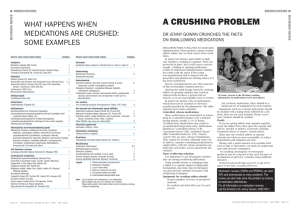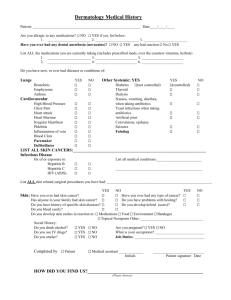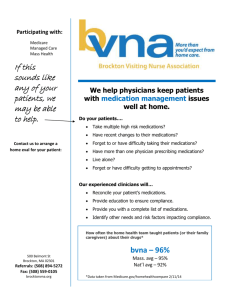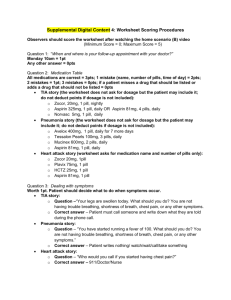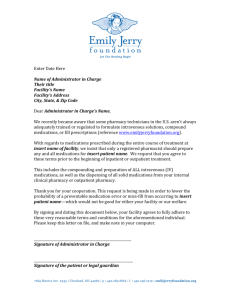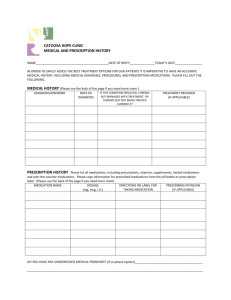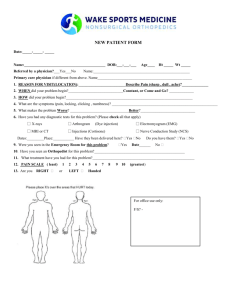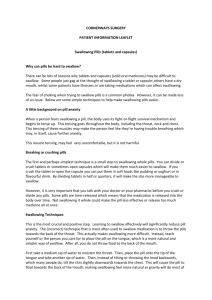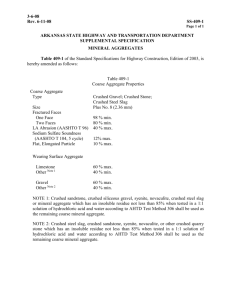The Dilemma of Crushing Pills
advertisement
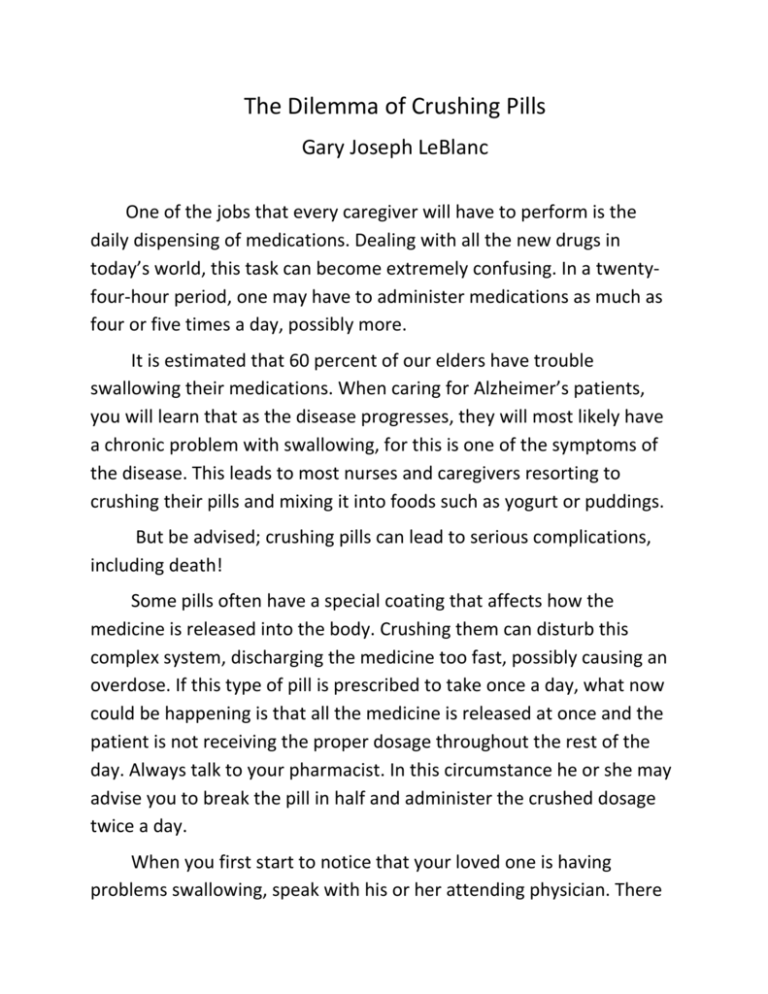
The Dilemma of Crushing Pills Gary Joseph LeBlanc One of the jobs that every caregiver will have to perform is the daily dispensing of medications. Dealing with all the new drugs in today’s world, this task can become extremely confusing. In a twentyfour-hour period, one may have to administer medications as much as four or five times a day, possibly more. It is estimated that 60 percent of our elders have trouble swallowing their medications. When caring for Alzheimer’s patients, you will learn that as the disease progresses, they will most likely have a chronic problem with swallowing, for this is one of the symptoms of the disease. This leads to most nurses and caregivers resorting to crushing their pills and mixing it into foods such as yogurt or puddings. But be advised; crushing pills can lead to serious complications, including death! Some pills often have a special coating that affects how the medicine is released into the body. Crushing them can disturb this complex system, discharging the medicine too fast, possibly causing an overdose. If this type of pill is prescribed to take once a day, what now could be happening is that all the medicine is released at once and the patient is not receiving the proper dosage throughout the rest of the day. Always talk to your pharmacist. In this circumstance he or she may advise you to break the pill in half and administer the crushed dosage twice a day. When you first start to notice that your loved one is having problems swallowing, speak with his or her attending physician. There may be alternatives to which form the medicine can be prescribed. It may also be available in liquid, patches, through inhalers or even suppositories. There are also precautions that should be taken for the person who is doing the crushing. It always wise to use an actual pill crusher or at least place the pill inside of a zip-lock bag before turning to into granules. This way you’re not inhaling any of the dust. (Be especially cautious if you’re pregnant.) There are many medications that should never be crushed. Here are a few examples of some medications and what complication that could occur when crushed: • Nifedipine and other high blood pressure medicine. Higher risk of a stroke or heart attack could occur, also possible headaches and dizziness. • Morphine and other pain killers. When crushed there is a high risk of an overdose. • Tamoxifen (Breast cancer medication) Should never be crushed, it could lead to a fatal release of the drug. Once again, speak with you doctor and pharmacist about your options. Figure out what works best for your loved one and yourself. I know from my past experience that the dispensing of my father’s medications was a task that constantly weighed heavily on my mind while caring for him.

